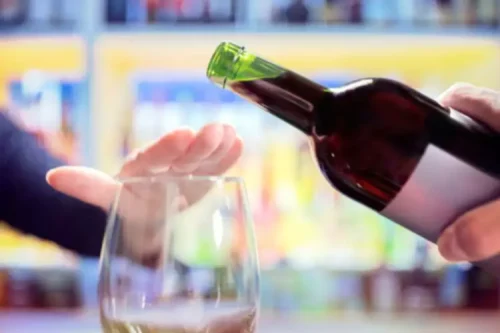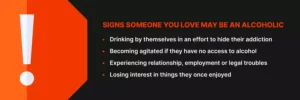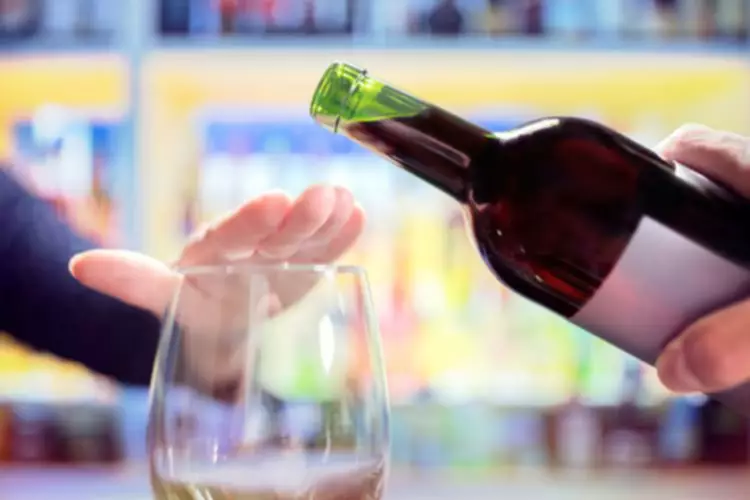Uncategorized
Abstinence Violation Effect AVE

Adaptive—I am doing the best I can and will continue to do the best I can. Realistic—Although I had a setback, I did not lose the gains that I have made in the past months. American Addiction Centers (AAC) is committed to delivering original, truthful, accurate, unbiased, and medically current information.

You can stop a slip from turning into a destructive downward spiral.
You may also have a similar thought to the reward thought after a period of sobriety. After a period of success in your recovery, you may think you can control your drug or alcohol use again. Even though you may think this time is different, if your drinking and drug use has gotten out of hand in the past, it is unlikely to be different now. It is important to celebrate a successful recovery and abstinence period. However, some people may think they have earned a drink or a night of drug use.
- The importance of understanding the stages of relapse and avoiding them cannot be overstated.
- A person with alcohol use disorder (AUD) may feel like drinking when out with friends at their favorite hangout, for example.
- I have lost all that time,” which can trigger a self-destructive mindset and potentially lead to further relapse.
- He found himself drinking heavily again despite this violation and ending up with even more difficulties.
Abstinence Violation Effect: How Does Relapse Impact Recovery?
In the multifaceted journey of overcoming addiction and living a healthier life, individuals often encounter a psychological phenomenon known as the abstinence violation effect (AVE). As a result of stress, high-risk situations, or inborn anxieties, you are experiencing negative emotional responses. Emotional relapses can be incredibly difficult to recognize because they occur so deeply below the surface in your mind. The AVE occurs when the person attributes the cause of the initial lapse (the first violation of abstinence) to internal, stable, and global factors within (e.g., lack of willpower or the underlying addiction or disease). It is not even on your mind to relapse at this point because of stress, high-risk situations, or inborn anxieties.
‘This Time Will Be Different’

An individual who feels guilt often uses substances to ease their guilt, which can lead to AVE. Guilt is a difficult emotion for someone to bear, one that can constantly replay in their minds, leading them to use substances again. When one returns to substance use after a period of abstinence, they experience a negative cognitive and affective reaction known as an abstinence violation effect in psychotherapy. An individual may experience uncontrollable, stable attributions and feelings of shame and guilt after relapsing as a result of AVE.

Emotional Relapse
Unfortunately, a single lapse can cause you to fall into a full relapse because of something called the abstinence violation effect (AVE). It is not necessarily a failure of self-control nor a permanent failure to abstain from using a substance of abuse. Those in addiction treatment or contemplating treatment can benefit from this aspect of relapse prevention. Once relapsed, this strongly held belief increases the likelihood of relapse.
As a result, when they are abstinent abstinence violation effect for a period, they will notice their tolerance has declined, making it possible for them to overdose if they start using again at the same level as before. It is argued that the central issue in the treatment of sexually aggressive behavior is the tendency to relapse shown by offenders. A model of the relapse process is presented along with what is described as its central feature, the abstinence violation effect (AVE). A brief description of Weiner’s attributional theory is provided and this is used to reformulate the AVE. The advantages of the reformulated AVE are described, as are the clinical implications. Drug addiction rewires the brain to consider drug use an important source of reward.
Is a Relapse Dangerous?
The importance of understanding the stages of relapse and avoiding them cannot be overstated. A person with alcohol use disorder (AUD) may feel like drinking when out with friends at their favorite hangout, for example. Relapse prevention requires understanding what triggers substance abuse. As an example, a smoker may feel the urge to smoke when driving long distances or while drinking coffee when they normally enjoy smoking.
Physical Relapse
He lost his license due to drinking and driving, and as a condition of his probation, he was required to attend Alcoholics Anonymous meetings. Many organizations, such as 12-Step programs like Alcoholics Anonymous, will often point to the notion that even thinking about using alcohol again represents a potential sign of a relapse. Relapse is viewed by psychologists as more of a process than a singular event. A relapse is the result of Halfway house a series of events that occur over time, according to psychologist and researcher Alan Marlatt, Ph.D.
NEARBY TERMS
- In psychology, relapses are seen as the result of an accumulation of events, not a single event.
- What is the abstinence violation effect, and what are the signs of a coming relapse?
- One night, she craves pizza and wings, orders out, and goes over her calories for the day.
- Mental relapse is characterized by thoughts of using drugs or alcohol again.
- Because emotional relapses occur so deeply below the surface in your mind, they can be incredibly difficult to recognize.
- Emotional relapses can be incredibly difficult to recognize because they occur so deeply below the surface in your mind.
According to Marlatt, this cascading effect leads to a relapse that occurs due to a cascading effect that entails several issues. In psychology, relapses are seen as the result of an accumulation of events, not a single event. They are the result =https://ecosoberhouse.com/ of a series of events occurring over the course of time, explains psychologist Alan Marlatt, Ph.D.
Uncategorized
2Face’s New Partner, Natasha Sparks Marriage Rumors with Name Change

Nigerian Singer 2Face’s new partner, Natasha Osawaru makes headlines as she adapts 2Face’s name.
Natasha sparks a controversial topic online as she claims “Idibia” as her name. She recently changed her name on her Instagram page and added Idibia to it.
A viral clip of Natasha calling out her name also causes fans to react. “My name is Hon Natasha Osaworu nee Idibia.”
Fans then question how she has the singer’s name if she is not married. This sparks marriage rumors stating that the couple might have already gotten married.
Uncategorized
Ijoba Lande Retracts Statement, Apologizes to Funke Akindele Over Payment Controversy

Nigerian Actor Ijoba Lande takes back his earlier statement regarding colleague, Funke Akindele. Lande first stated that the actress paid him half amount after working on her set for a month.
He claimed that he was paid #90,000 after a month’s work. The actor first lamented on the amount received and gathered attention from many.
However, on the 4th of April, 2025, the actor took back his statement and shared there was an error in the first claim released.
He clarified that he was paid #190,000 and not #90,000, stating that there was an error when sending out the first statement.
“Funke Akindele gave me ₦190,000, not ₦90,000. Please help me beg Aunty Funke. The video was cut and joined, which led to the mistake. People only shared the part where I misspoke and not where I corrected myself. Please, forgive me. I don’t want to go to jail.”
Uncategorized
United states Online casino Discounts and you may Incentives 2024
United states Online casino Discounts and you may Incentives 2024
Content
After you get the best cellular local casino user for the private needs, the next thing is first off to try out the new games you like. Cellular gambling games are in numerous variations, and harbors, roulette, blackjack, poker, baccarat, craps, games suggests, immediate wins, and more. Whenever selecting a-game, you should get the best option to make sure you enjoy as well as the best risk of successful. Because the name means, speaking of 100 percent free series offered only for current participants. You may have to fool around with a promo password otherwise meet specific standards, and then FS will be placed into your bank account. 100 percent free spins incentives to own existing consumers is generally provided through the holidays or because the a determination to have a player whom hasn’t starred in the a gambling establishment for a while.
- Such revolves offer the opportunity to possess excitement out of harbors without the need for their bankroll, to your likelihood of winning real money below particular criteria.
- Don’t tune in to sites one aren’t fully transparent with the added bonus plan.
- #advertising 18+, Clients just, minute deposit ten, wagering 60x to possess reimburse incentive, maximum bet 5 which have added bonus fund.
- Having a no-deposit promo code, you may get aminimal level of bonus moneyonce he’s got registered.
Online slots will be the top video game during the no deposit extra casinos. Of a lot better gambling web sites provides exclusive free revolves extra rules one to render Irish participants the chance to spin the fresh reels to your newest ports and you may winnings free bucks. Including headings regarding the industry’s greatest application business, for example NetEnt, who submit exciting notes, desk game, and online ports playing and you will earn totally free cash. Specific headings, such as jackpot harbors, aren’t accessible to fool around with no-deposit bonus codes. The very best no-deposit added bonus and no 100 percent free spins no-deposit now offers can be obtained here, i’ve understood best wishes NZ web based casinos offering zero put incentives.
Exactly what are Internet casino Bonuses?
To market a preexisting position or directory of harbors that casino driver would like to highlight and you will popularize. Having liberty at heart, the new 888 Gambling enterprise experience runs across the a selection of gizmos—Personal computers, Android phones or pills, iPhones, and you will iPads. No downloads are essential, as the all of the game can be accessible individually inside internet browser. Discover the varied and charming world of games awaiting your during the 888 Casino. Within complete table, we introduce a wide range of playing options one to focus on the taste and you will thrill top. From the subsequent parts, you’ll see an out in-depth review of 888’s constant campaigns.
Must i Continue Winnings Away from An excellent 20 Free Revolves Incentive?
The new no deposit incentive is generally credited instantly for your requirements or through to consult. Whether it will come on your account you could potentially go to the brand new gambling enterprise lobby and begin playing. Typical players are not omitted, while the reputable gambling enterprises have many different campaigns and you can respect benefits built to manage wedding and you may award persisted enjoy. Contrasting your own status since the possibly a different otherwise normal pro is imperative to pinpointing the most beneficial also provides available. Yes, you can keep the earnings out of an excellent 20 free revolves incentive. As long as you complete the fresh wagering standards, they’ve been yours to expend however need to.
Local casino Superlines
The platform have more than 350 other gambling games, in addition to slots, bingo, keno, baccarat, or other card brands. Why are the website book is the fact they’s mostly worried about women as the address classification. Very, you’ll find personal incentives for the females, and an on-line bingo totally free sign up incentive – no-deposit expected. Freshly joined people have access to free bingo bedroom and you can enjoy instead of and then make a bona-fide currency deposit in the 1st three days immediately after membership. Up coming, the money acquired inside the brings might be later on translated to bucks from the to try out.
Such, a gambling establishment might provide a great one hundred extra but cover the fresh payouts during the five hundred. We believe people need the ability to winnings large from a bonus, so we favor incentives that don’t cap earnings. Thus giving players the opportunity to get a huge win probably. Along with 8,one hundred thousand slot online game and you may an extensive set of dining table game, the fresh local casino offers an abundant and ranged playing feel designed to help you suit the player’s preferences. Whether you are a slot machines fan otherwise choose the thrill from dining table games, Slots Gallery have some thing for everybody.
Technical things, for example system mistakes otherwise glitches, can affect extra activation otherwise redemption. Whether or not this occurs just after transferring or perhaps in the middle of a good online game, your best bet is to contact support service. If you follow one to specific real cash gambling enterprise, you may also be capable of getting particular usage out of its commitment program, or at least actually its VIP scheme, for individuals who play enough. You can utilize it bonus package to build their money, providing you much more revolves and opportunities to earn. Searching for a premier percentage function you could potentially increase, matches if not double the put number that have a casino signal upwards bonus. You can get to 100 100 percent free spins as opposed to deposit from an informed totally free revolves casinos in the Canada.
-

 Entertainment23 hours ago
Entertainment23 hours ago“I Don’t Feel Safe” – Verydarkman Cries Out Online
-

 Entertainment23 hours ago
Entertainment23 hours agoLove Island Star Rob Rausch Wins Traitors Season 4
-

 Sport23 hours ago
Sport23 hours agoDiego Simeone Calls Out Ademola Lookman Over Defensive Duties
-

 Entertainment23 hours ago
Entertainment23 hours agoFuji Star Shanko Rasheed Atanda Loses First Son
-

 Entertainment23 hours ago
Entertainment23 hours agoGospel Singer Busola Oke Opens Up About Financial Struggles
-

 Sport24 hours ago
Sport24 hours agoPaul Merson Names Mohamed Salah the Greatest Winger of All Time






